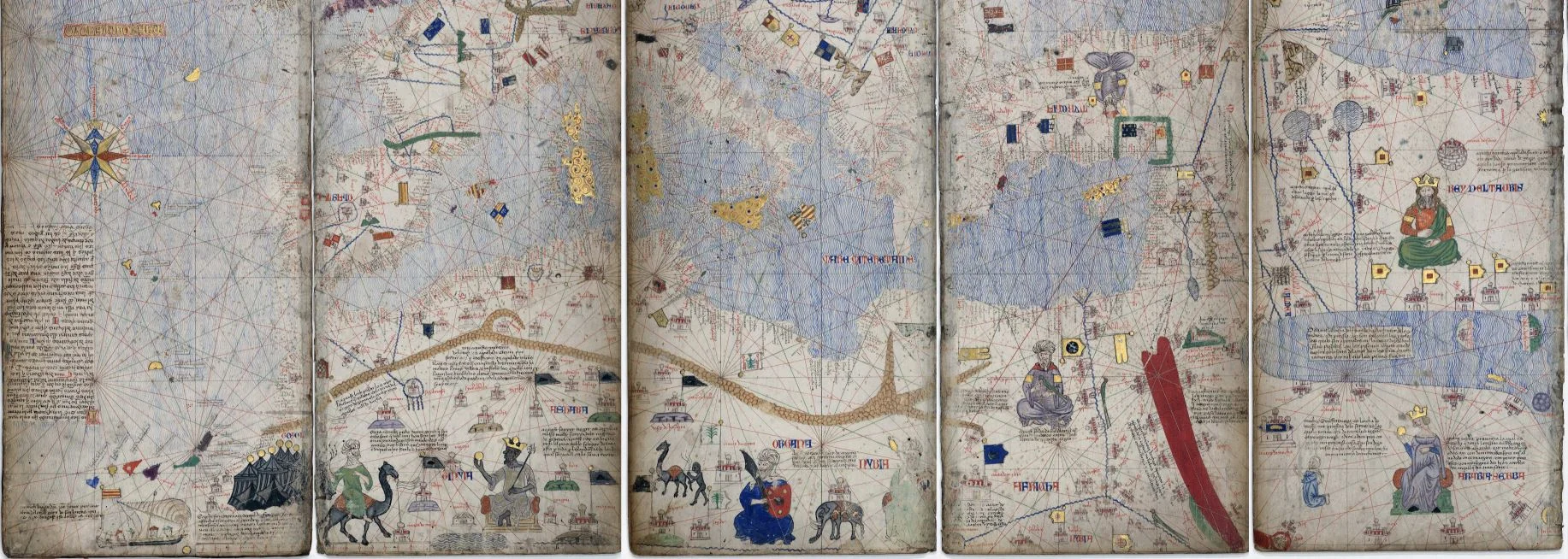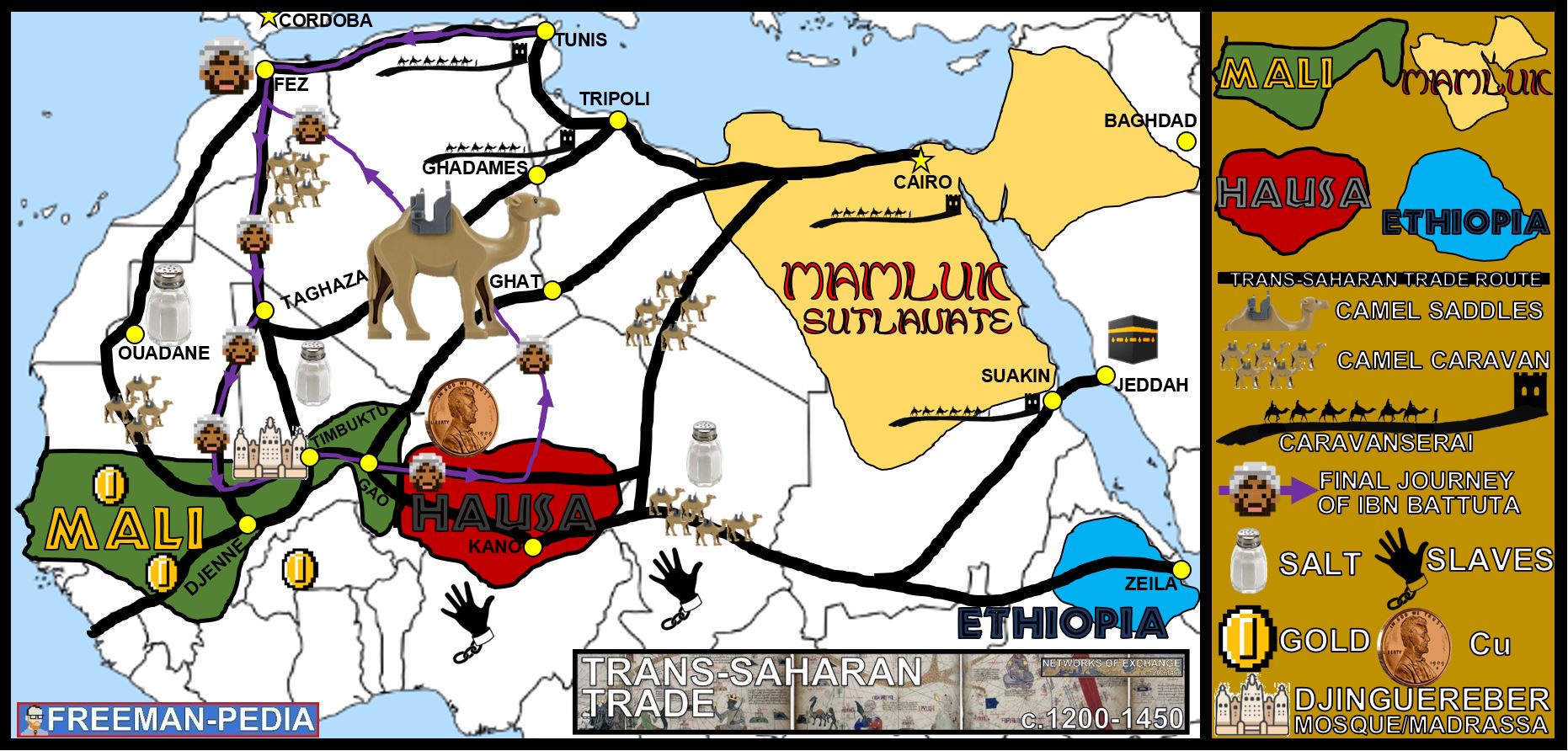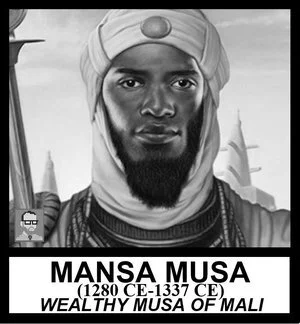The Trans-Saharan Trade route is the THIRD major one of the Global Tapestry Period (1200-1450). It is the most overlooked and underrated. HOWEVER, you get so much from this trade route. Diasporic communities? Check. Camels with freaking saddles? Check. Astrolabes and other devices to navigate the stars in the biggest desert on the planet? Check. Ibn Battuta? Obvious check… Dude is everywhere. Mansa Musa and Lion Kings? Check. Defeaters of Mongols? (Mamluks) Check. Spread and syncretism of Islam? Check. It’s got everything. Unfortunately, it will be COMPLETELY overshadowed in the next period with ATLANTIC SYSTEM and the Europeans heading over into the Indian Ocean. So… Enjoy it while it lasts. THIS is the Trans-Atlantic Trade Route.
MANSA MUSA & ISLAM IN AFRICA (from CRASH COURSE World History)
WORLD’S TOUGHEST JOB: SALT MINER (These are modern day West African Salt miners and their routes to Timbuktu across the desert via camel caravans) (from NATGEO)
1. The Epic of Sundiata, c. 1250, Griots (Oral tradition), (TIMBUKTU, MALI)
2. A Gift to Those Who Contemplate the Wonders of Cities and the Marvels of Travelling, (This is the section on his journey to Mali & Timbuktu) 1355 CE, Ibn Battuta (MOROCCO)
3. The Book of Lessons (Kitab al-lbar), c. 1375, Ibn Khaldun (MAMLUK SULTANATE)
4. Timbuktu Manuscripts, c. 1250 (TIMBUKTU, MALI)
5. Tarikh al-Fattash, (West African Chronicle written in Arabic) c. 1650 (TIMBUKTU, MALI)
1. CATALAN ATLAS, c. 1375, (MAJORCA, SPAIN)
2. DRAWING OF TIMBUKTU, c. 1827, RENEE CAILLIE (1st European to visit and return from Timbuktu alive… Notice the Djinguereberer Mosque). (PARIS, FRANCE)
3. HEINRICH BARTH APPROACHING TIMBUKTU ON 7 SEPTEMBER 1853, Martin Bernatz, 1853, (BERLIN, GERMANY)
4. ARAB CARAVAN RESTING BY THE SEA, 1865, JOSEPH BENWELL (KENSINGTON, ENGLAND)
5. 13th CENTURY SLAVE MARKET IN YEMEN, 13th Century, Maqamat Al-Hariri (SYRIA)
1. The Sub-Saharan world joined the Global Tapestry via this trade route.
2. Sources are limited on this route compared to the others (Ibn Battuta was the first person to go from north of the Sahara and back and write about it and he died in 1369!)
3. The goods being traded along this route are simple: Salt, Gold, Slaves.
4. This area will become overwhelmingly Islamic due to their trading partners across the desert (think Mansa Musa’s pilgrimage)
5. Timbuktu is your major trade city to know. It was the Sub-Saharan center of knowledge and culture for centuries.















